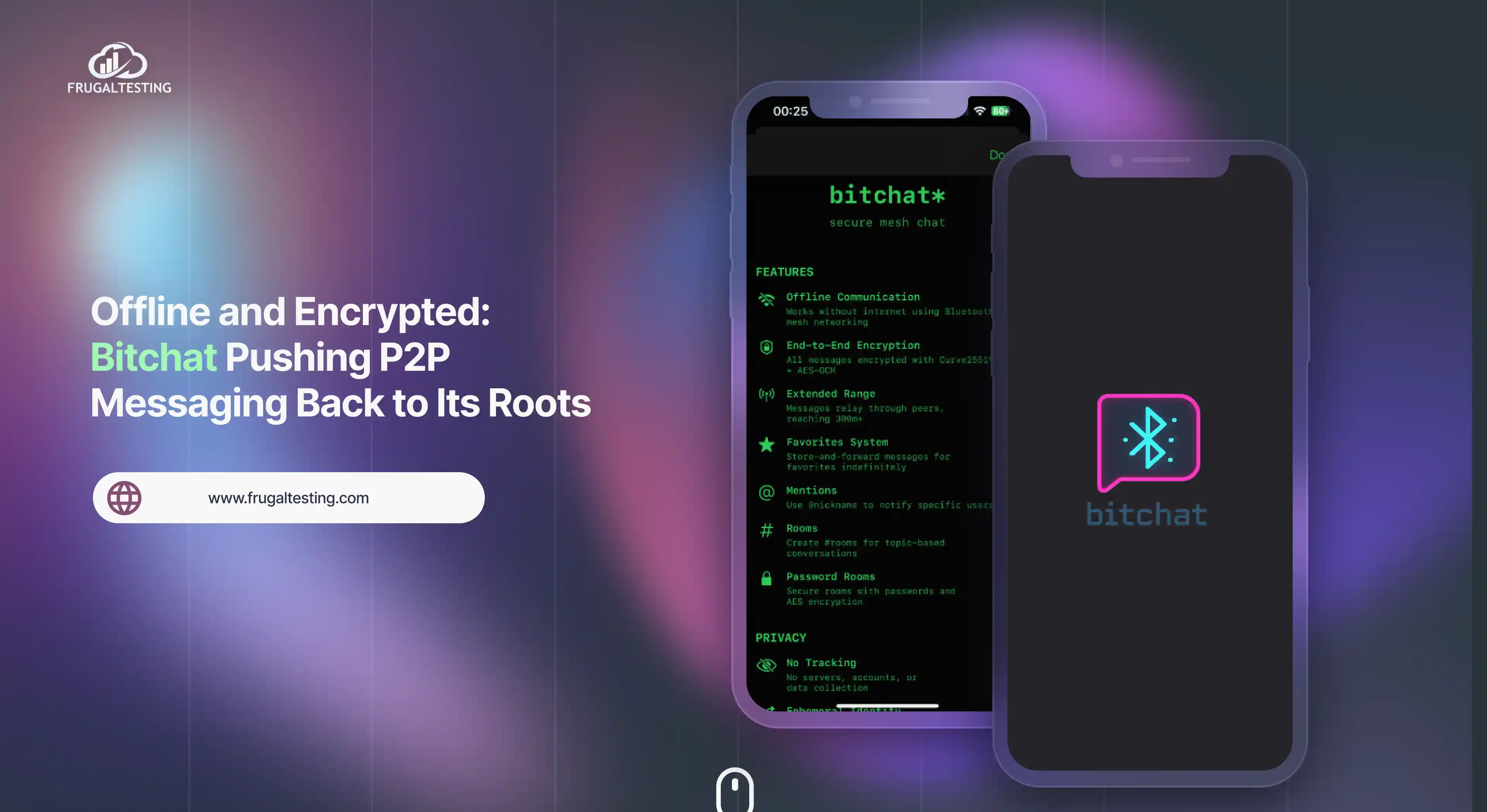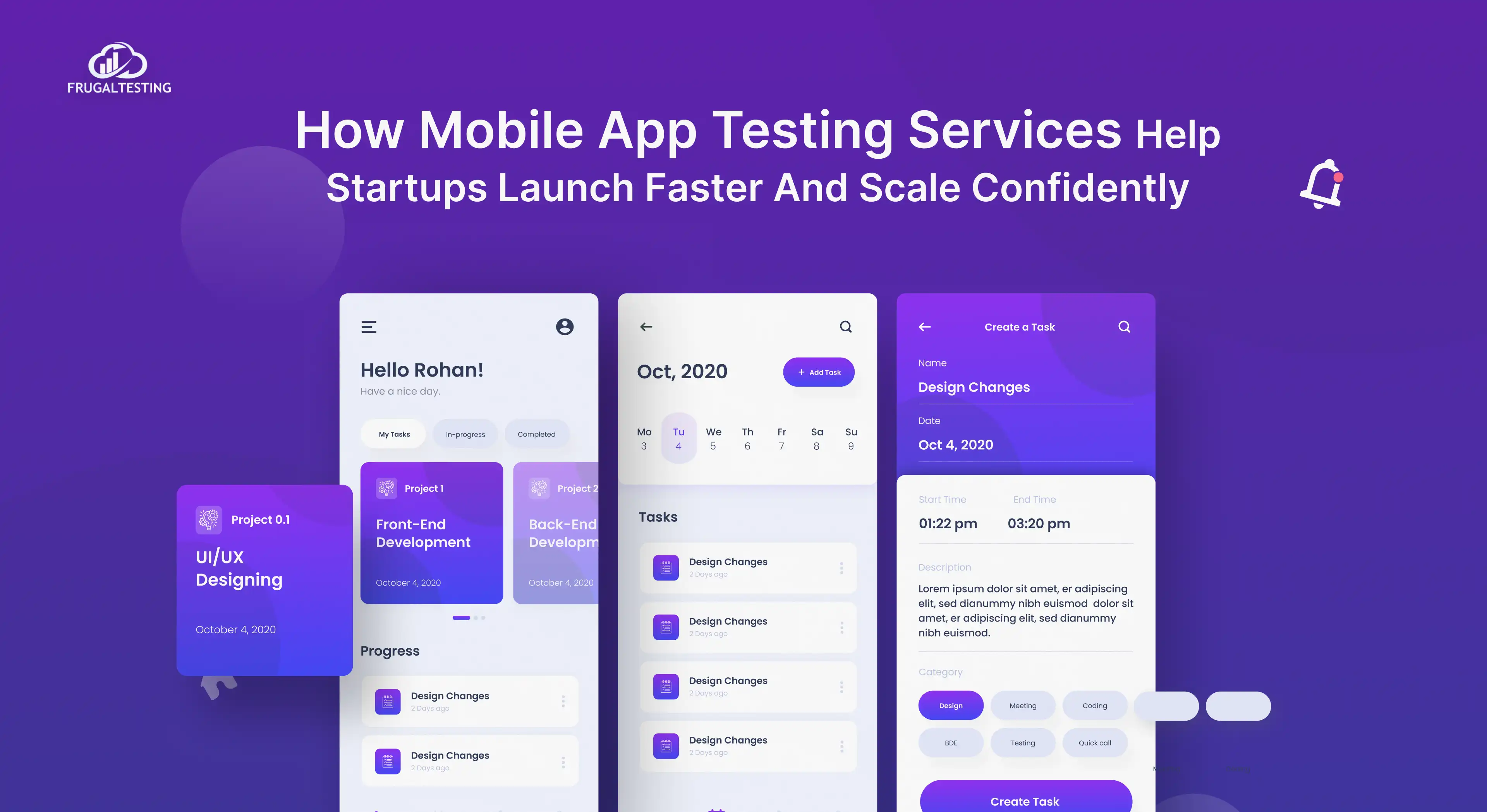In the ever-changing gaming business, testing video games to make sure they are flawless, immersive, and offer outstanding performance is essential.
Choosing the appropriate tools for game testing as a QA software tester can greatly increase workflow effectiveness, precision, and user satisfaction. 🎮
The best game testing tools for 2025 will be discussed in this blog, along with their special characteristics and how they enable QA testers to address contemporary gaming issues. 🚀
We’ll cover the following topics:
💡 Why Game Testing Tools Are Essential: Find out how crucial game testing tools are to producing high-caliber games.
🛠️ Top 5 Game Testing Tools: Examine programs such as TestComplete, Appium, Selenium, GameBench, and TestRail.
⚙️ Tool Comparisons:A thorough comparison to assist you in choosing the best instrument for your project.
🔍 Best Practices: Techniques for overcoming obstacles and streamlining your testing process.
🔥 Future Trends: Learn about new developments in game testing techniques and tools.
Prepare to improve your testing abilities with 2025's top video game testing tools! 🎯
Why Game Testing Tools Are Essential for QA Testers
Tools for game testing are essential for guaranteeing the usability, performance, and quality of games. They assist QA testers with simulating user interactions, automating repetitive activities, and guaranteeing compatibility across several platforms, including mobile devices, PCs, and consoles.
These solutions streamline processes, cut down on manual labor, and increase productivity for both novice and expert QA testers, facilitating effective bug discovery and providing flawless gaming experiences. 🎮
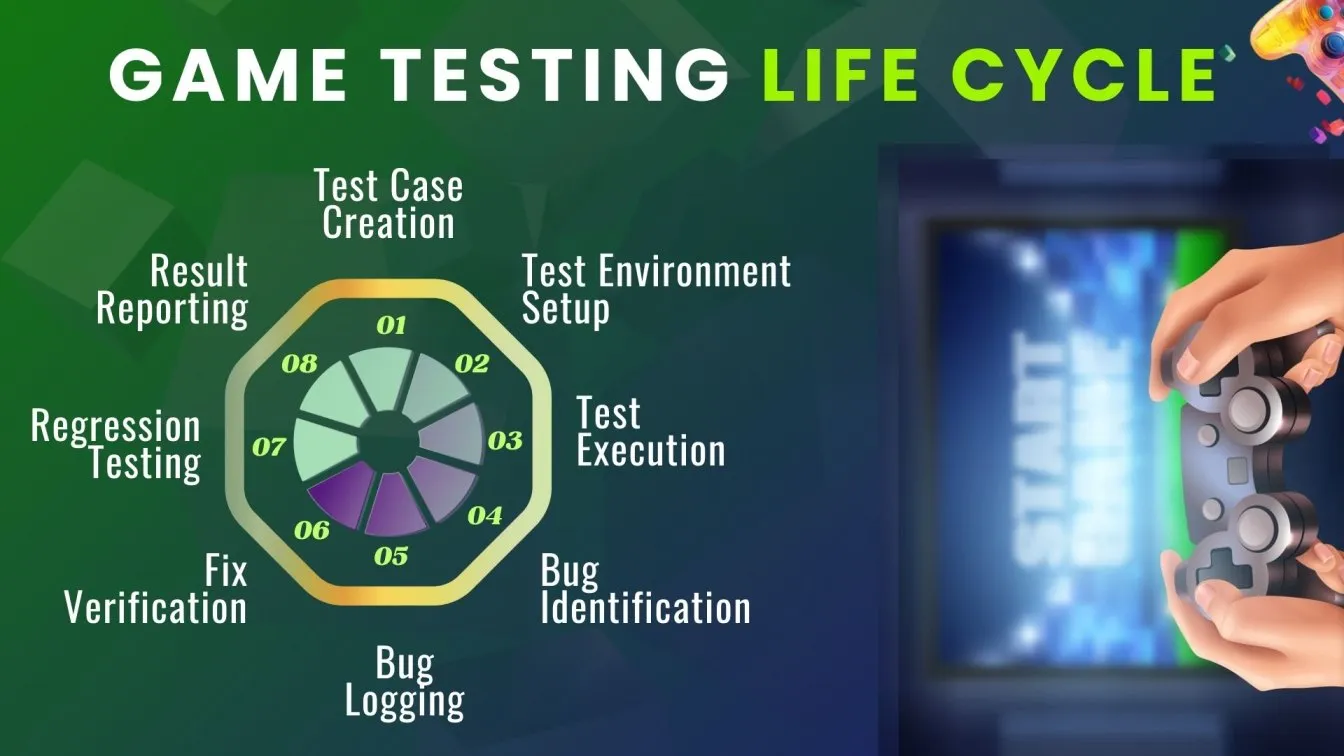
Key Highlights:
- Maintain Game Quality: Ensure games meet high standards of usability and performance.
- Automation: Streamline repetitive tasks and testing processes.
- Simulate Real-World Scenarios: Recreate user interactions to validate gameplay functionality.
- Cross-Platform Compatibility: Test games on PCs, consoles, and mobile devices.
- Ease of Use: Simplify workflows for both beginners and experienced QA testers.
- Boost Productivity: Improve efficiency by reducing manual efforts and focusing on critical issues.
For a seasoned tester or someone just starting a video game testing journey, these tools are the key to delivering exceptional gaming experiences. 🎮
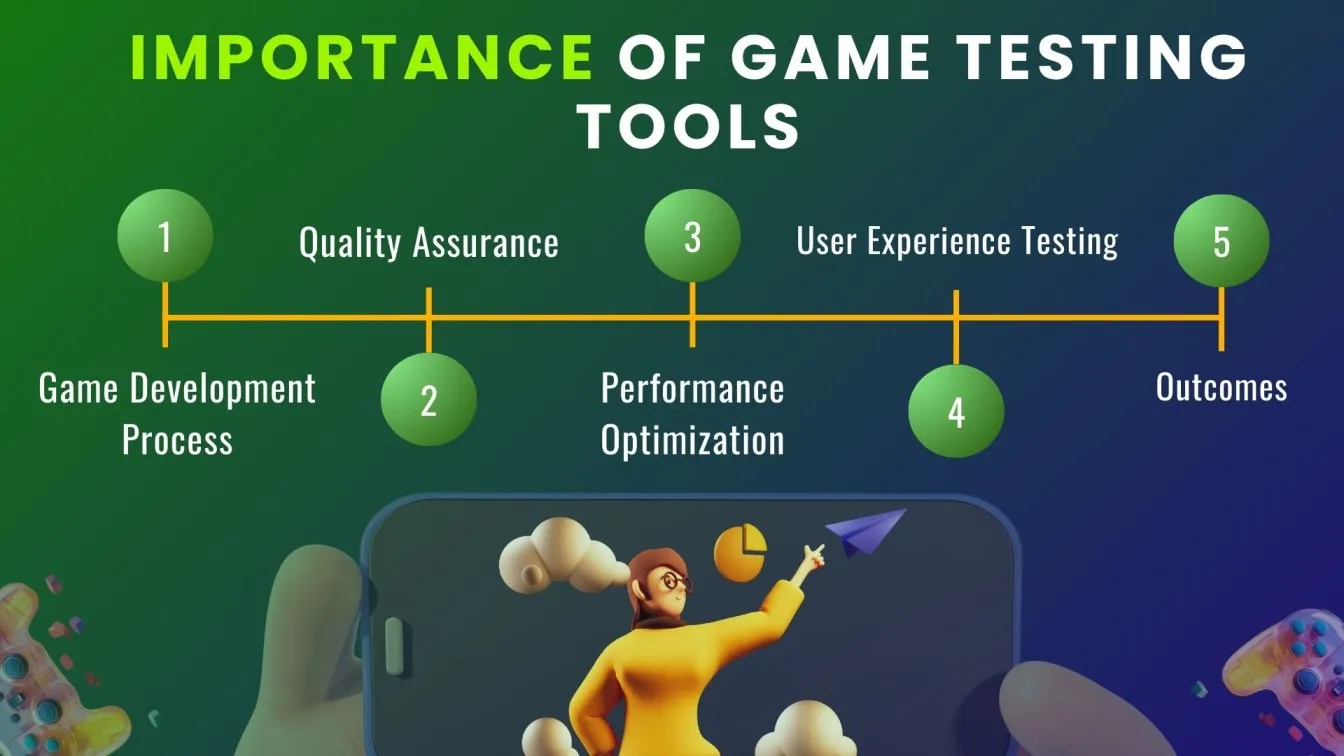
Understanding the Role of QA in Game Development
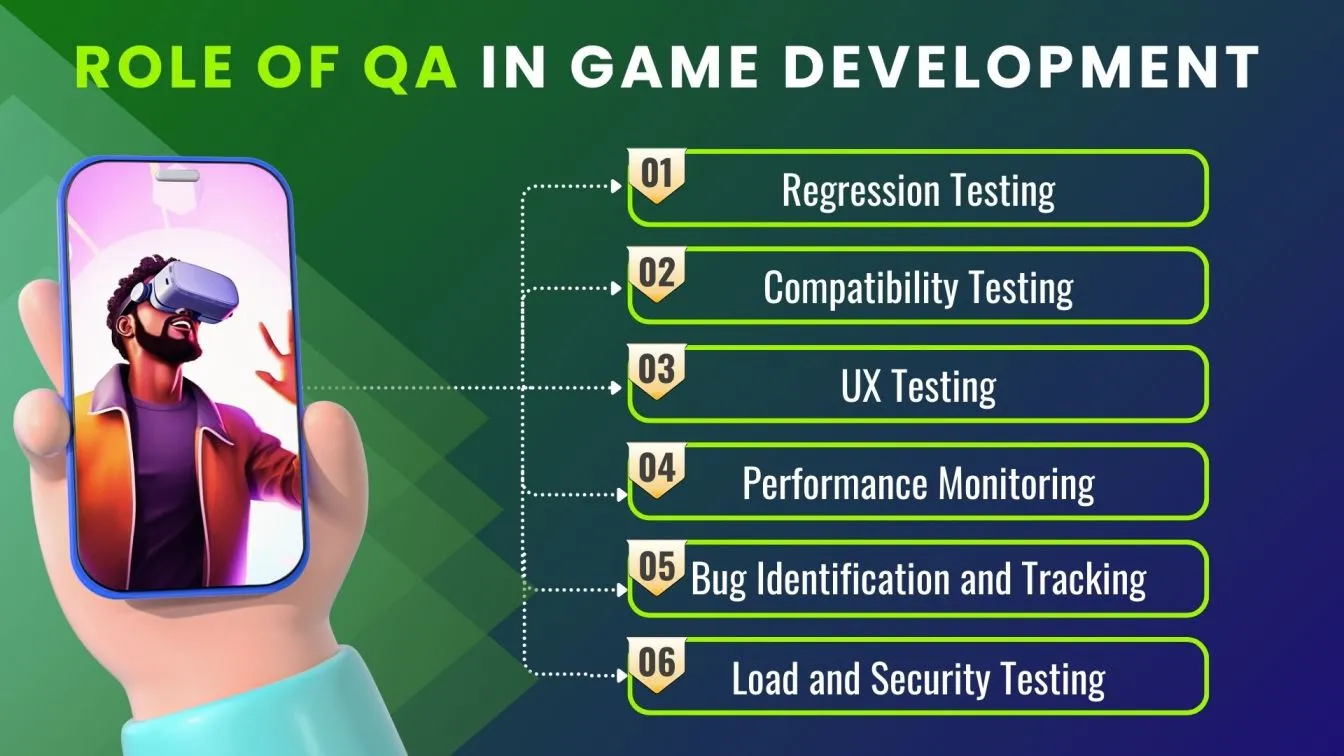
In the gaming industry, ensuring games meet high-quality standards requires a combination of manual testing and advanced automation testing tools.
QA teams perform rigorous testing through techniques like load testing, stress testing, and unit testing to identify performance issues and enhance the customer experience.
Using tools with extensive customization and a keyword-driven approach, testers can streamline repetitive testing tasks while maintaining reliability in critical tests.
Additionally, integration testing and user acceptance testing ensure seamless compatibility between the game engine and mobile applications, improving the overall user interface and addressing minor issues before release.
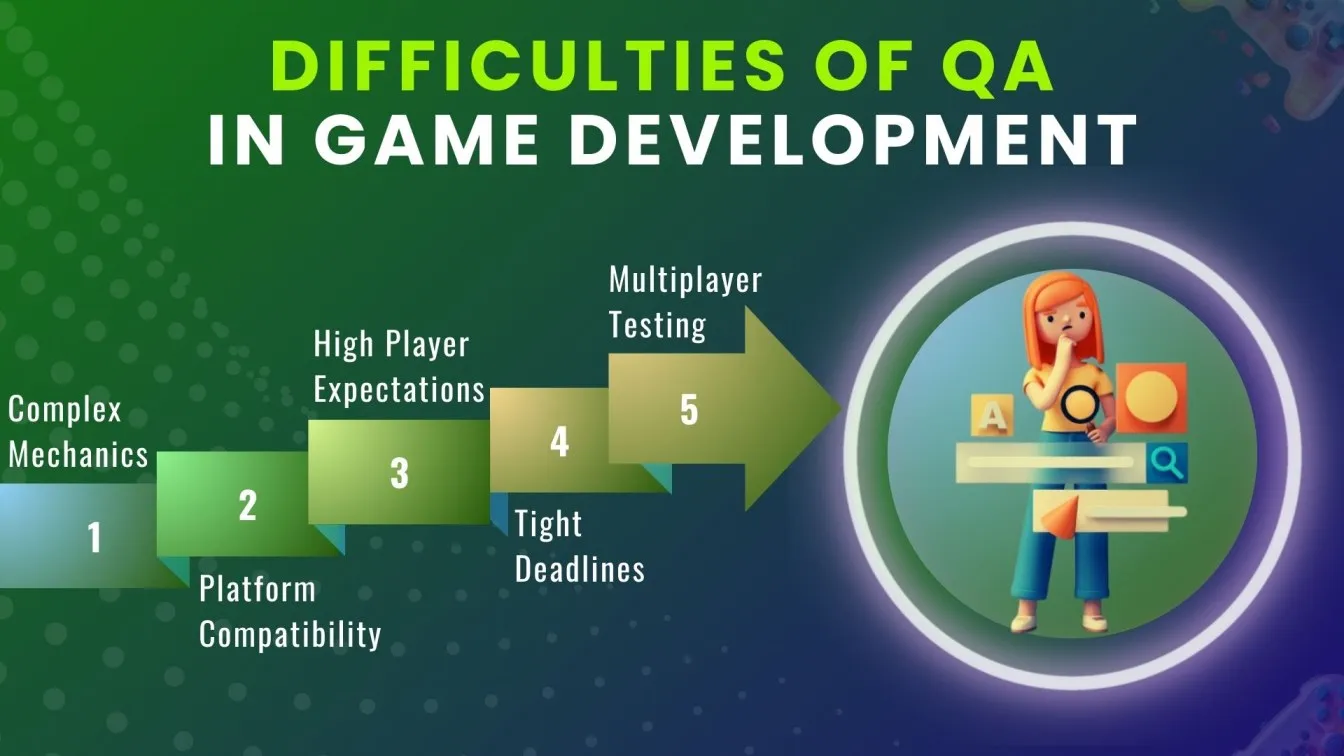
Overview of the Best Game Testing Tools for QA
Here are the top five tools QA testers should know in 2025:
- TestRail: A powerful tool for managing, monitoring, and organizing game test cases. It offers thorough reporting and connects with bug-tracking tools.
- Appium: Perfect for testing mobile games on iOS and Android, it supports emulators for cross-platform compatibility as well as real devices.
- Selenium: A dependable tool that supports numerous browsers and testing frameworks for automated browser-based game testing.
- GameBench: Focuses on keeping an eye on performance indicators like frame rate, CPU/GPU use, and memory to guarantee fluid gameplay on all platforms.
- TestComplete: Makes automated testing for desktop, web, and mobile games easier with CI/CD connections and record-and-playback capabilities
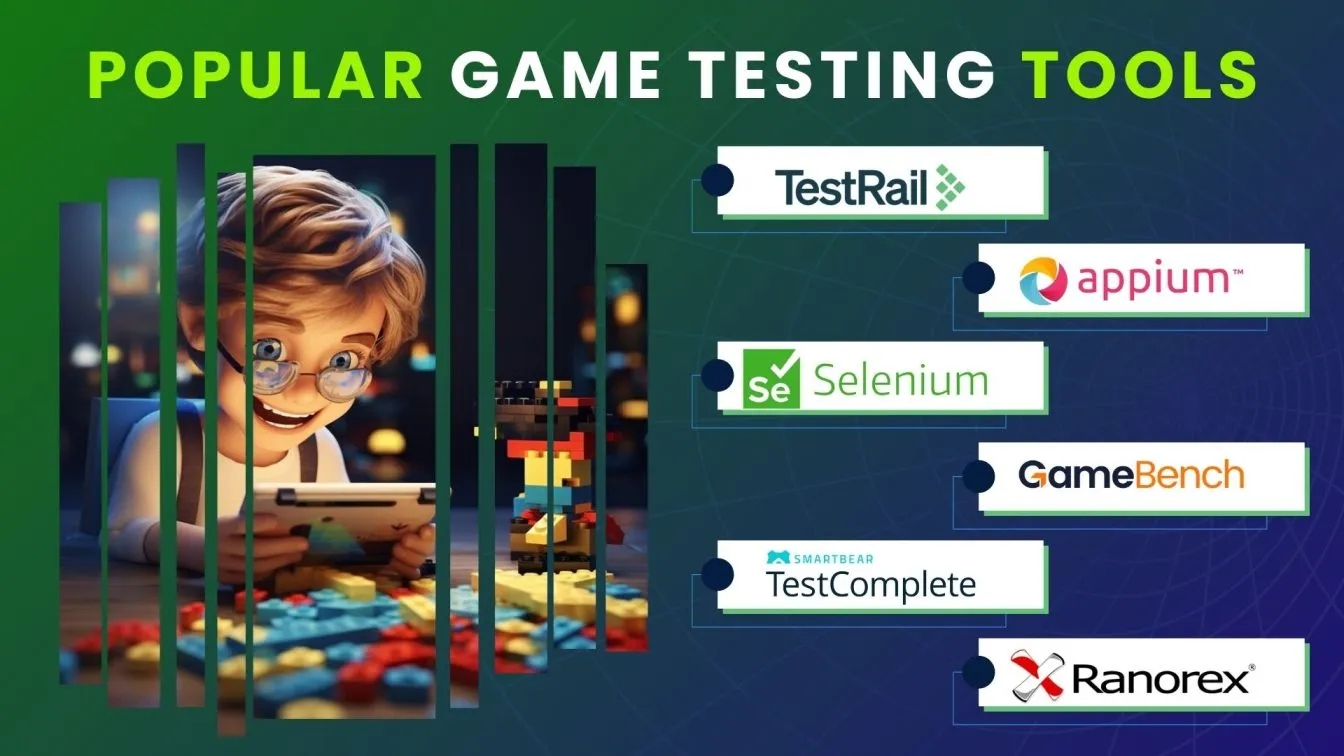
Let’s explore these tools in detail! 🎮
TestRail: A Comprehensive Tool for Managing Game Test Cases
TestRail is a powerful tool for organizing and managing test cases, making it ideal for game testing companies.
Its centralized test management simplifies workflows and fosters collaboration among QA teams. With features like bug-tracking integration and detailed analytics, TestRail helps track progress efficiently and ensures high-quality game releases. For a video game tester or a QA lead, it streamlines the entire testing process.
Key Features of TestRail:
- Centralized Repository for Test Management:
TestRail serves as a single platform for organizing and storing all test cases, making it easy for teams to access and manage them during the testing lifecycle. This ensures consistency and avoids duplication. - Integration with Bug Tracking Tools:
TestRail integrates seamlessly with tools like JIRA, enabling QA testers to log defects directly and track them within the same ecosystem. This integration saves time and improves efficiency in addressing issues. - Comprehensive Reporting and Analytics:
With its in-depth reporting features, TestRail provides real-time insights into testing progress, coverage, and team performance. These analytics help QA managers identify bottlenecks and optimize workflows. - Improved Collaboration:
TestRail fosters better communication and collaboration among team members by providing visibility into test cases, statuses, and defect tracking. This makes it an ideal choice for both in-house and remote QA teams.
TestRail ensures a streamlined and productive testing process, making it a must-have tool for modern game testing teams. 🎮
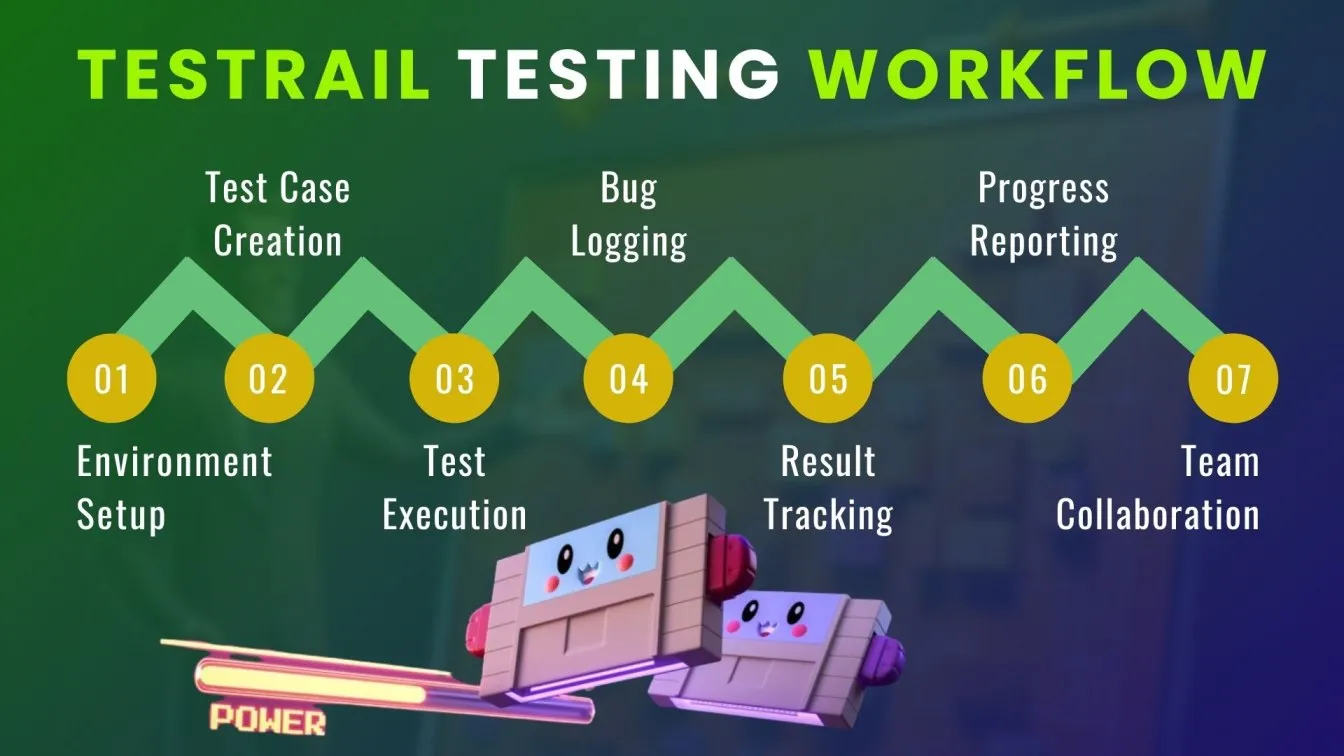
Appium: Cross-Platform Mobile Game Testing Made Easy
With strong cross-platform application support, Appium is a flexible and indispensable solution for automated mobile game testing. It is perfect for testing games on a variety of mobile devices because it works with both the iOS and Android platforms.
Appium offers versatility and user-friendliness with its integration possibilities for programming languages such as Python and JavaScript. It is a great option for effective mobile game testing because of its easy setup, which enables testers to run tests on actual devices or emulators with ease.
Key Features of Appium:
- Cross-Platform Compatibility:
Appium makes sure mobile games run consistently on all platforms by supporting testing on both iOS and Android. - Programming Language Support:
It gives testers who are accustomed to various coding environments freedom by integrating with well-known languages like Python, JavaScript, and Java. - Easy Setup:
Appium streamlines the testing process for mobile games by enabling testers to quickly set up and run tests on real devices or emulators.
Appium is a vital tool for QA teams striving for top-notch, cross-platform gaming experiences since it streamlines the challenges of mobile game testing. 🎮
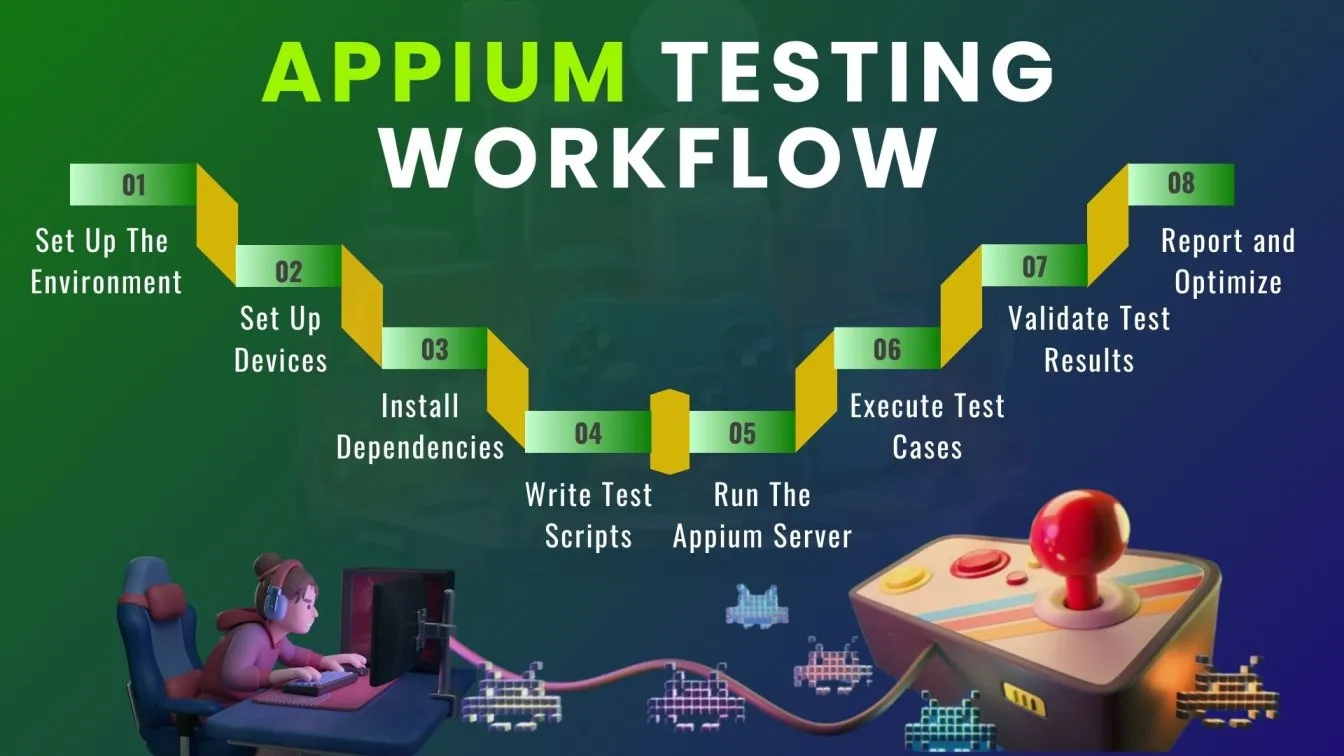
Selenium: A Trusted Tool for Browser-Based Game Testing
Selenium is a trusted tool for automating browser-based game testing, offering flexibility and robust capabilities. It supports multiple browsers, ensuring compatibility and consistent performance.
With seamless CI/CD integration and support for frameworks like TestNG and JUnit, Selenium enables efficient workflows and precise validations. It remains a go-to solution for delivering high-quality browser-based games.
Key Features of Selenium:
- Cross-Browser Compatibility:
Selenium enables testers to automate test cases across popular browsers like Chrome, Firefox, and Edge, ensuring games perform reliably on all platforms. - Seamless CI/CD Integration:
Selenium integrates effortlessly with CI/CD tools like Jenkins and GitLab, allowing automated game testing to be incorporated directly into development pipelines for faster feedback and improved efficiency. - Support for Testing Frameworks:
By working with frameworks like TestNG and JUnit, Selenium allows testers to write structured and reusable test cases, ensuring robust validations for game functionality and performance. - Flexibility and Scalability:
As an open-source tool, Selenium is highly customizable and scalable, making it suitable for testing everything from small browser games to complex web-based gaming platforms.
Selenium remains an essential tool for QA teams focused on delivering high-quality, browser-based gaming experiences. 🎮
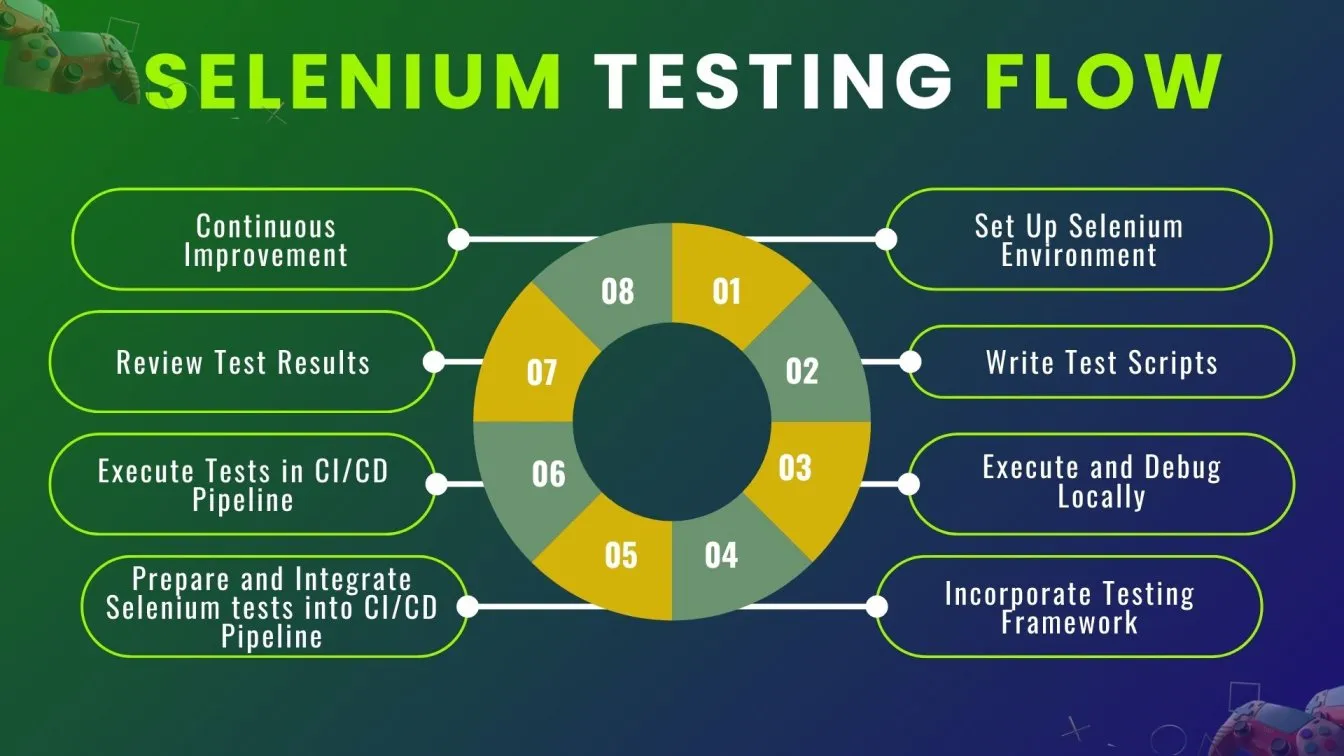
GameBench: Monitoring Game Performance Across Devices
GameBench is a specialized performance testing tool that lets QA testers measure important metrics including memory utilization, CPU/GPU usage, and frame rate. It offers real-time performance monitoring to guarantee fluid and well-optimized gameplay on all devices.
GameBench provides useful UX insights and assists in locating performance bottlenecks in games that run on PCs and mobile devices. For preserving the best possible game performance on all platforms, this makes it an essential tool.

Key Features of GameBench:
- Real-Time Performance Monitoring:
Detects any problems during gameplay by continuously monitoring measures including frame rate, CPU/GPU utilization, and memory consumption. - Cross-Platform Compatibility:
Ensures smooth performance across a variety of gaming platforms by supporting performance testing for PC and mobile games. - UX Insights:
By identifying performance bottlenecks, it gives QA teams useful information about the user experience and aids in improving the overall quality of the game.
For QA testers who are committed to producing high-performance games on all platforms, GameBench is an essential tool. 🎮
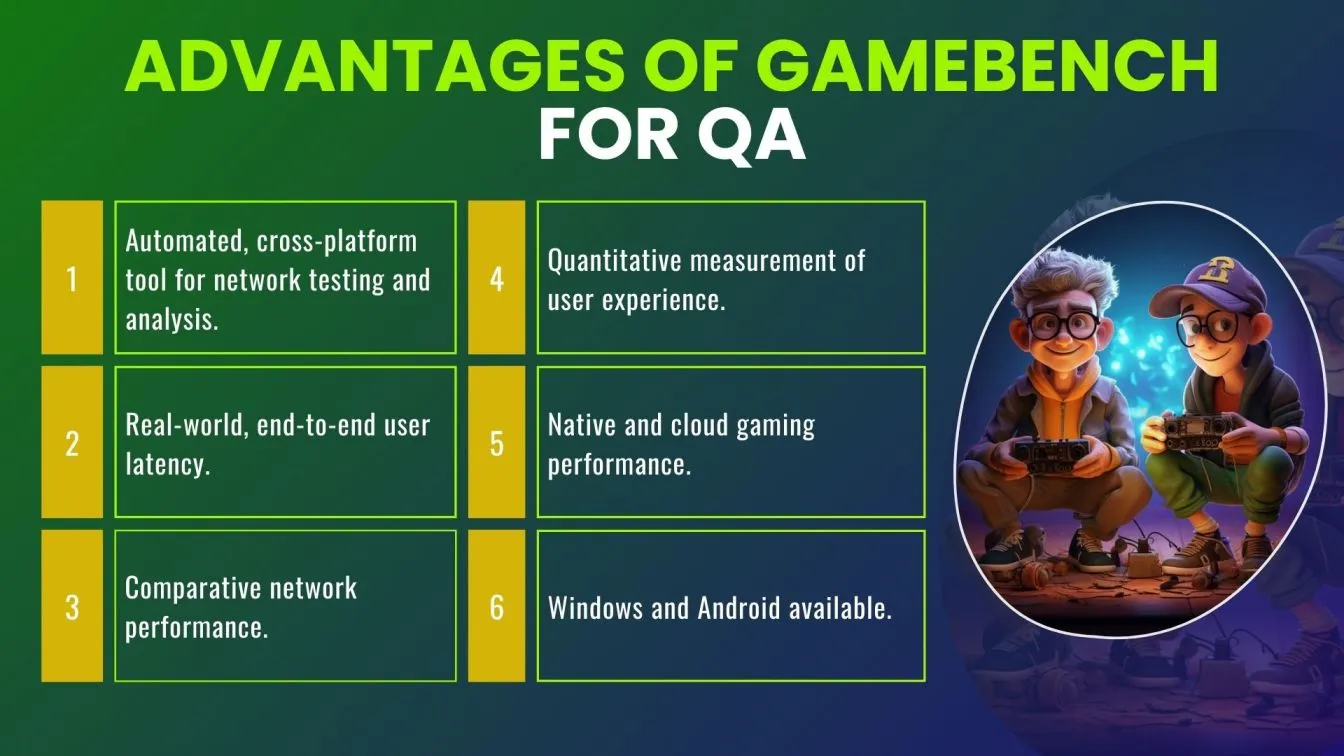
TestComplete: Simplifying Automated Game Testing Across Platforms
TestComplete is a flexible and easy-to-use automated testing tool made for testing games on several platforms. It is perfect for a variety of testing requirements because it supports desktop, web, and mobile games.
TestComplete makes the process of developing and automating test workflows easier with features like record-and-playback capabilities and smooth CI/CD pipeline integration. Its user-friendly interface ensures accurate and efficient testing for both novice and seasoned testers.
Key Features of TestComplete:
- Multi-Platform Support:
TestComplete is a complete cross-platform testing solution that facilitates game testing on PC, online, and mobile platforms. - Record-and-Playback Functionality:
Simplifies the testing process by enabling game testers to quickly and effectively develop automated tests without requiring a deep understanding of code. - CI/CD Pipeline Integration:
Interacts with CI/CD technologies like Jenkins with ease, enabling automated workflows to be incorporated into the development process for quicker deployment and feedback.
TestComplete is the preferred option for QA teams striving to provide faultless gaming experiences since it is a potent solution that streamlines and expedites automated game testing.
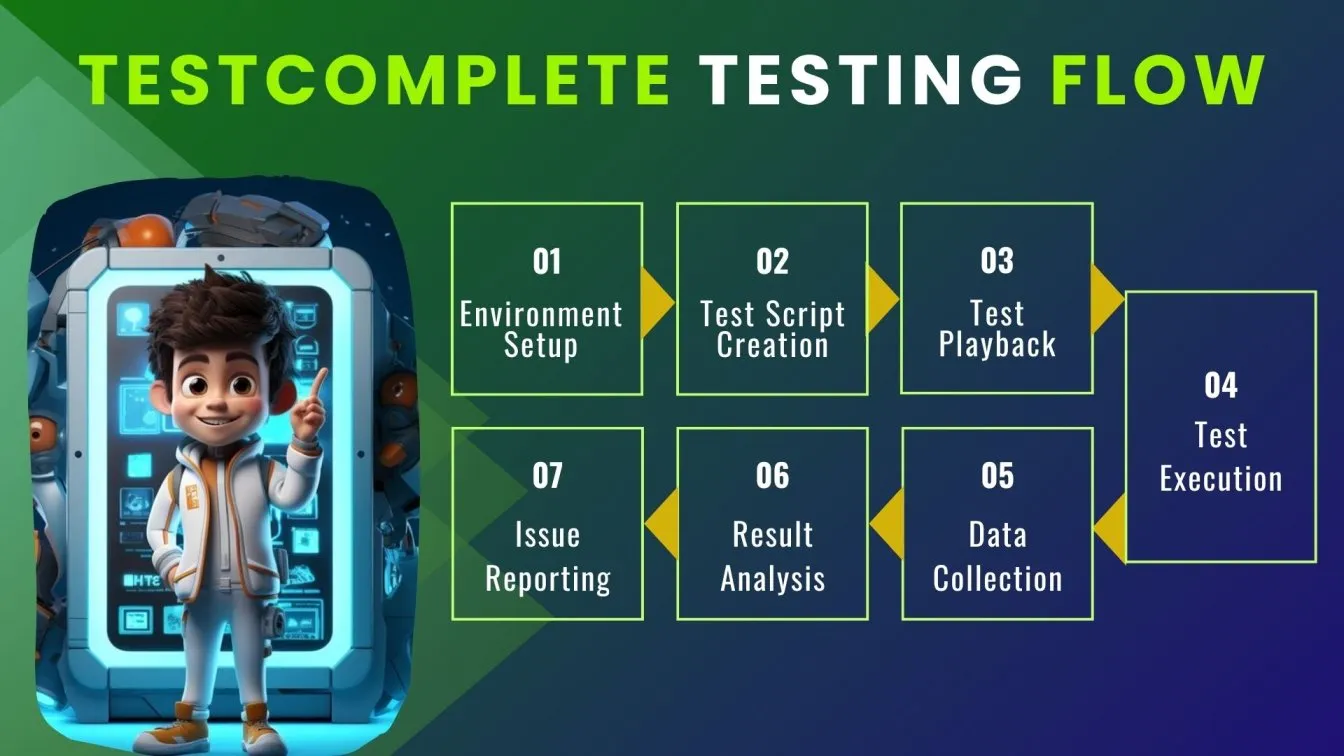
Comparing Game Testing Tools: Which Tool Fits Your Needs?
Choosing the right game testing tool depends on your specific needs, such as the type of game, testing objectives, and platform requirements.
The table below compares the top tools, highlighting their strengths to help you make an informed decision. 🎮
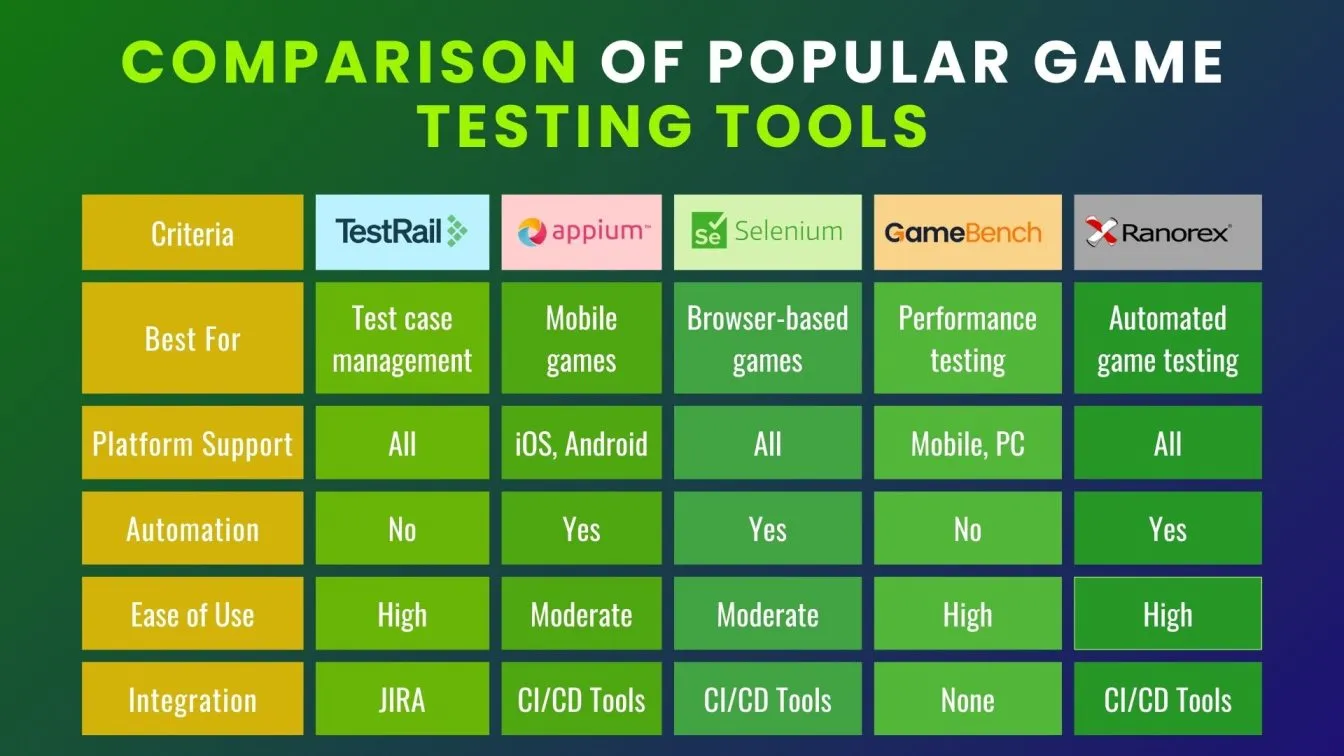
Choose the tool that aligns with your software testing methodologies and project needs!
Best Practices for Using Game Testing Tools in 2025
Modern functional testing tools enable QA teams to manage complex test scenarios efficiently while generating reusable test scripts that work across various platforms.
Automation reduces flaky tests and enables real-time data collection, vital for mobile app development and maintaining high standards in continuous integration workflows.
A comprehensive guide for QA teams includes strategies like running tests from a single script to improve testing efficiency and evaluating battery consumption for optimized performance.
Close collaboration with the development team ensures alignment with industry trends and enhances the testing capabilities required to deliver immersive gaming experiences.
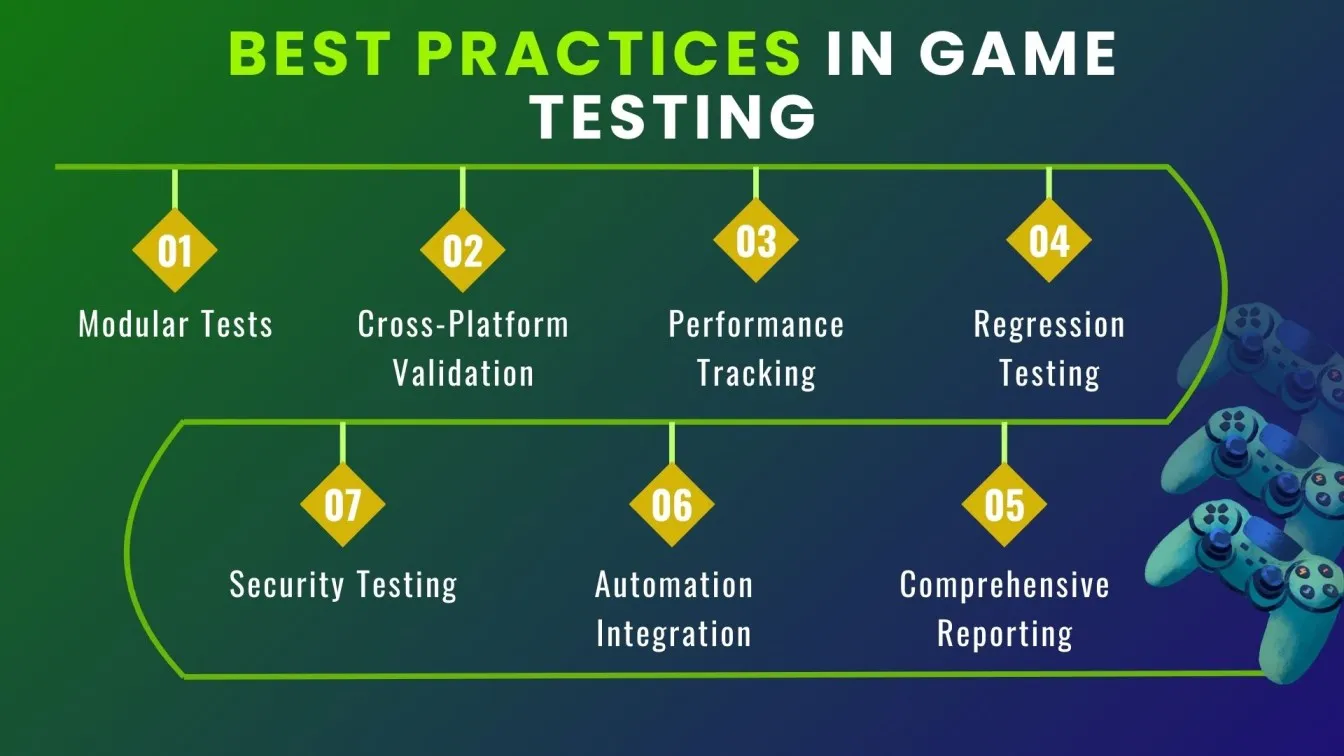
Building an automation framework within the development cycle streamlines testing cycles and ensures enhanced software quality. By implementing various types of testing, QA teams can deliver reliable and high-performing applications.
Common Challenges and Solutions in Game Testing
- Handling Complex Game Mechanics: Modern games often involve intricate mechanics that can be tough to test manually.
✅ Solution: Leverage automation tools in testing like Selenium or TestComplete to automate repetitive and complex test cases, ensuring thorough validation with minimal manual effort.
- Ensuring Compatibility Across Platforms: Games need to perform seamlessly across devices, operating systems, and screen resolutions.
✅ Solution: Use cross-platform tools like Appium and performance-focused tools like GameBench to ensure consistent functionality and performance across all platforms.
- Managing Large Test Suites: Game testing often involves extensive test cases that can become difficult to manage and track.
✅ Solution: Organize and centralize test cases using TestRail, which provides better tracking, analytics, and team collaboration.
By addressing these challenges with the right solutions, QA testers can deliver polished, high-quality games that delight users! 🎯✨
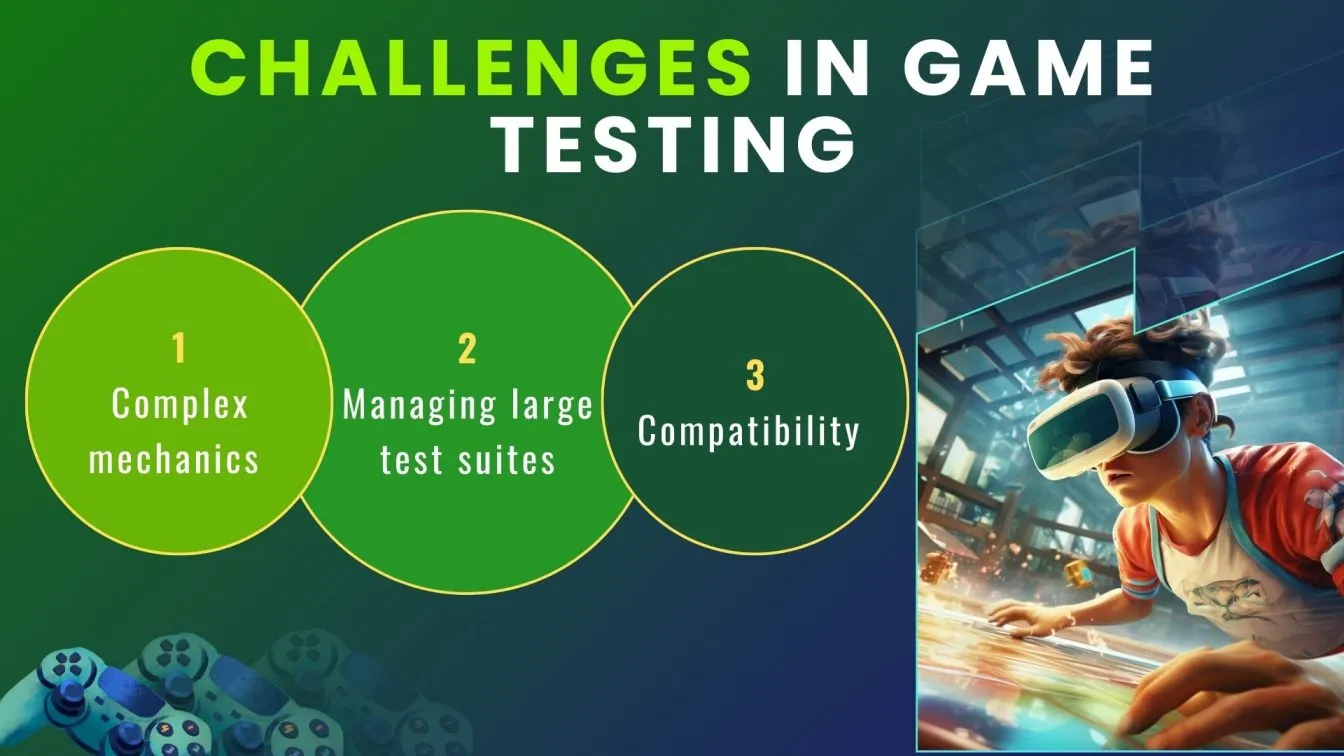
Future Trends in Game Testing Tools
The desire for increased efficiency and technology breakthroughs is driving a rapid evolution in the future of game testing technologies. The following major themes will influence game testing in the upcoming years:

🤖 AI-Driven Testing
AI is revolutionizing game testing by making it possible for tools to anticipate errors and spot vulnerabilities before they arise.
- Predictive Bug Detection: In order to foresee possible problems with gameplay mechanics or system interactions, AI programs examine patterns.
- Automated Test Case Generation: Test cases can be dynamically created and optimized by AI technologies, which increases coverage and decreases manual labor.
☁️ Cloud-Based Testing
Game testing is being revolutionized by cloud technologies, which offer scalable, on-demand settings.
- Virtual Testing Environments: QA teams don't need real devices to replicate games across several platforms.
- Global Accessibility: With the help of the cloud, testers may work together remotely and create effective testing processes and real-time updates.
🎮 AR and VR Game Testing
Specialized methods for testing immersive environments are emerging as AR and VR gaming continue to rise in popularity.
- Interaction Testing: In order to ensure precise reactions to gestures and actions, tools assess user interactions in virtual environments.
- Hardware Compatibility: Testing ensures smooth integration with VR headsets, motion controllers, and other peripherals.
🔒 Increased Focus on Security
With the rise of online and multiplayer gaming, security testing has become a priority.
- Advanced Software Security Testing: Tools focus on identifying vulnerabilities in gaming platforms to prevent data breaches and unauthorized access.
- Enhanced Fraud Detection: AI-driven tools are used to detect and mitigate cheating or hacking attempts in real time.
These trends highlight the growing complexity and innovation in game testing tools, paving the way for QA teams to deliver seamless, secure, and immersive gaming experiences. 🚀🎮
Conclusion
Ensuring a seamless gaming experience requires a strategic mix of manual testing and advanced automation tools. Key techniques like regression testing verify that updates don’t disrupt functionality, while functional testing ensures the game operates as intended. Combinatorial testing and exploratory testing help identify hidden bugs and usability issues, mimicking real user interactions.
To address compatibility issues, cross-browser testing and careful selection of the right testing type are essential. These approaches enable QA teams and game developers to deliver high-quality games that provide flawless experiences across platforms.
People also asked
👉How can I become a game tester?
Gain knowledge of game mechanics, learn QA tools, and build experience through internships or certifications.
👉Which is better, game testing or software testing?
It depends on your interest - game testing focuses on gameplay, while software testing covers a wide range of applications.
👉What are the types of game testing?
Types include functionality testing, compatibility testing, performance testing, usability testing, and regression testing.
👉Is a game tester a hard job?
It can be challenging due to tight deadlines, repetitive tasks, and detailed analysis, but it's rewarding for gaming enthusiasts.
👉How to work as a game tester from home?
Look for remote game testing opportunities on freelance platforms or with companies offering remote QA roles.



.webp)

%201.webp)
